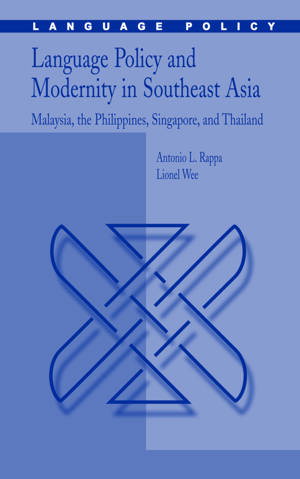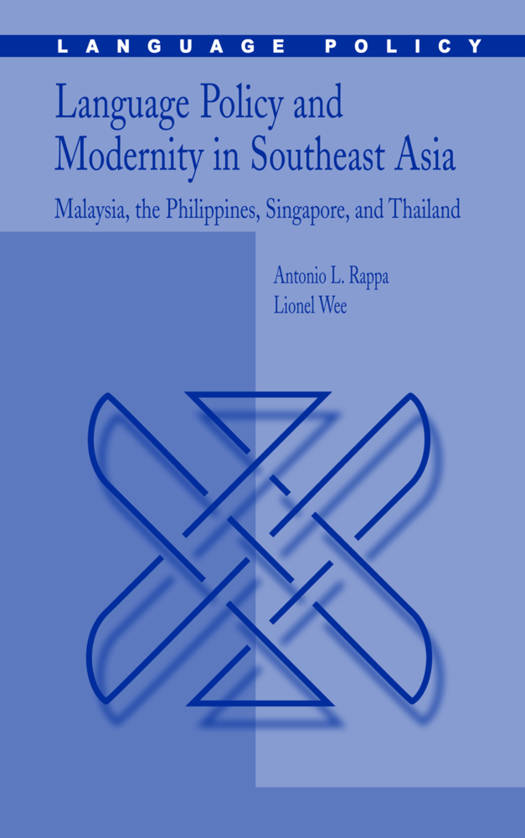
- Afhalen na 1 uur in een winkel met voorraad
- Gratis thuislevering in België vanaf € 30
- Ruim aanbod met 7 miljoen producten
- Afhalen na 1 uur in een winkel met voorraad
- Gratis thuislevering in België vanaf € 30
- Ruim aanbod met 7 miljoen producten
Zoeken
Language Policy and Modernity in Southeast Asia
Malaysia, the Philippines, Singapore, and Thailand
Antonio L Rappa, Lionel Wee Hock an
€ 139,95
+ 279 punten
Uitvoering
Omschrijving
Source: CIA World Factbook, 2005 In this book, our goal is to understand how the language policies of various nation-states in Southeast Asia grapple with the challenge of modernity. Our focus will therefore be on language policies as these are explicitly articulated either in the form of constitutions or public proclamations made by political leaders. We do not RAPPA AND WEE: LANGUAGE POLICY AND MODERNITY IN SOUTHEAST ASIA 2 deny that language policies can be implicit (Spolsky, 2004: s) since ideologies about language are prevalent regardless of whether these lead to overt policy formulations or not. However, our interest is in the attempts by Southeast-Asian nation-states to maintaidlegitimize particular 'nationalist imaginations' (cf. Anderson, 1991), and such attempts are best seen in the kinds of explicit declarations made by agents of the state. It seems clear that our objective includes the question of how these nation-states manage the spread of the English language, since English is often seen as the language of modernity par excellence (May, 2001).
Specificaties
Betrokkenen
- Auteur(s):
- Uitgeverij:
Inhoud
- Aantal bladzijden:
- 159
- Taal:
- Engels
- Reeks:
- Reeksnummer:
- nr. 6
Eigenschappen
- Productcode (EAN):
- 9781402045103
- Verschijningsdatum:
- 23/02/2006
- Uitvoering:
- Hardcover
- Formaat:
- Genaaid
- Afmetingen:
- 156 mm x 234 mm
- Gewicht:
- 417 g

Alleen bij Standaard Boekhandel
+ 279 punten op je klantenkaart van Standaard Boekhandel
Beoordelingen
We publiceren alleen reviews die voldoen aan de voorwaarden voor reviews. Bekijk onze voorwaarden voor reviews.











